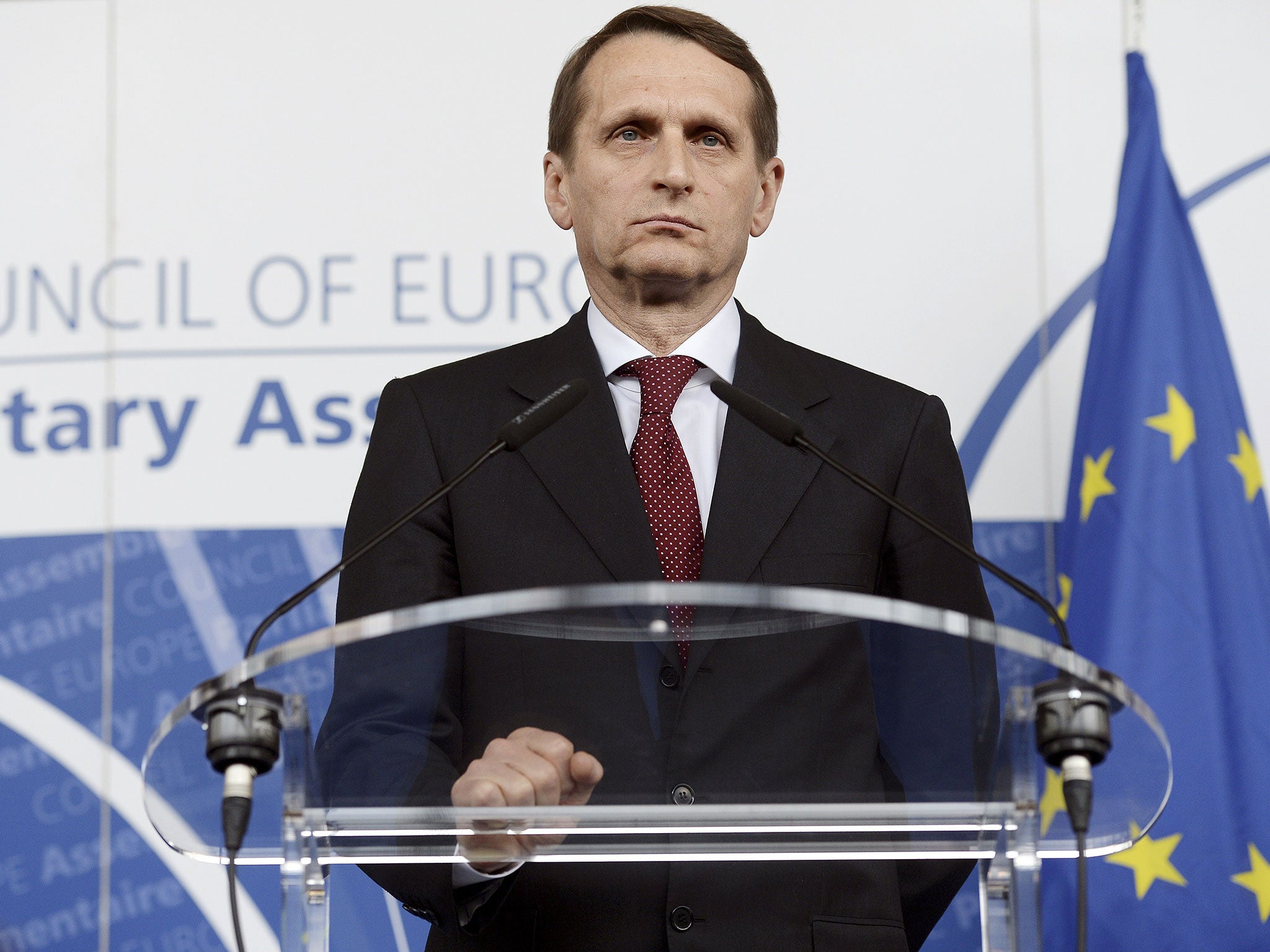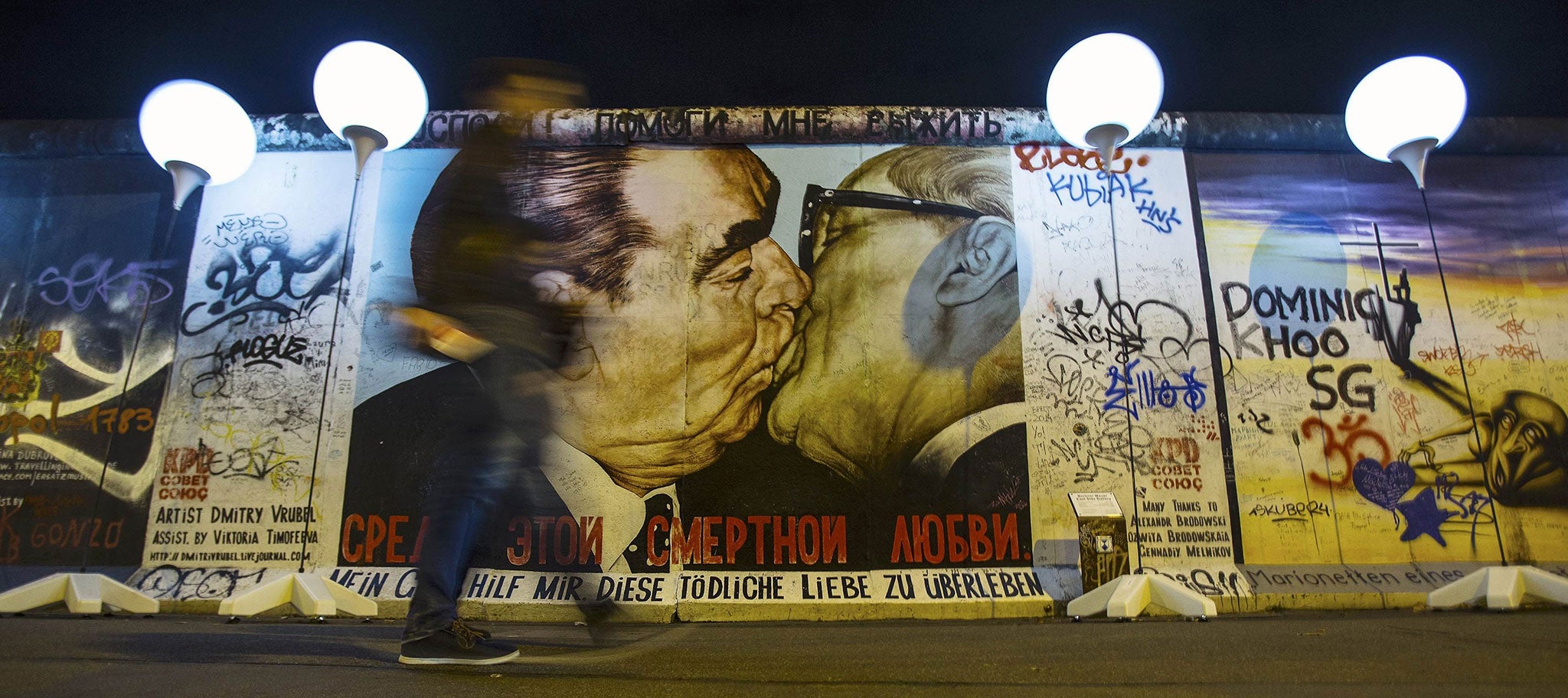Russia considers bizarre proposal to condemn West Germany’s 1989 'annexation' of East Germany
Russia and Germany have an important, if complicated, relationship

Your support helps us to tell the story
From reproductive rights to climate change to Big Tech, The Independent is on the ground when the story is developing. Whether it's investigating the financials of Elon Musk's pro-Trump PAC or producing our latest documentary, 'The A Word', which shines a light on the American women fighting for reproductive rights, we know how important it is to parse out the facts from the messaging.
At such a critical moment in US history, we need reporters on the ground. Your donation allows us to keep sending journalists to speak to both sides of the story.
The Independent is trusted by Americans across the entire political spectrum. And unlike many other quality news outlets, we choose not to lock Americans out of our reporting and analysis with paywalls. We believe quality journalism should be available to everyone, paid for by those who can afford it.
Your support makes all the difference.Russian politicians will consider a new statement that would condemn an event that happened 25 years ago – the reunification of Germany.
According to Russian news agency Tass, State Duma Speaker Sergey Naryshkin has asked the Duma's Committee on Foreign Affairs to look into condemning the "annexation" of East Germany by West Germany in 1989.
Given the time that's passed and the relative success of German reunification, the idea has struck many as absurd: Mikhail Gorbachev, leader of the Soviet Union in 1989, called it "nonsense" on Wednesday. Similar outlandish statements have been made by Russian politicians recently – last year, one proposed a ban on high heels, for example.
However, this proposal can't be as easily dismissed: Naryshkin is an ally of President Vladimir Putin, and it seems unlikely he would have made such a bold statement without the Russian leader's approval.
And while the events it concerns may be long in the past, the motivation is likely the present. The plan was originally put forward by Nikolay Ivanov, a Communist Party politician, who has argued that the reunification of Germany was insufficiently democratic. "Unlike Crimea, a referendum was not conducted in the German Democratic Republic," Ivanov was quoted as saying, referring to the region of Ukraine that broke away to join Russia last year after a disputed referendum.
Russia and Germany have an important, if complicated, relationship. Chancellor Angela Merkel is perhaps the closest Western leader to Putin – she grew up in East Germany, and – like Putin, who served with the KGB in Dresden – can speak both German and Russian. However, Merkel has been a prominent voice supporting sanctions on Russia after actions in Ukraine, and the relationship has been strained. Merkel famously told President Obama that the Russian leader was living "in another world."
Ivanov pointed to comments made by the president of the Parliamentary Assembly of the Council of Europe (PACE), Anne Brasseur of Luxembourg, who had accused Russia of annexing Crimea, and said his proposal was a "form of a retaliatory step." Merkel herself had also recently condemned Russia for its actions in Crimea. “The annexation of Crimea is a violation of something that has made up our peaceful coexistence, namely the protection of borders and territorial integrity,” Merkel said last week in Davos, Switzerland.

Even if the proposal is just bluster, a direct comparison between the two events does seem a little hard to make. The reunification of Germany occurred after Hungary removed its border fence, allowing thousands of East Germans to escape to the West, and eventually helped to topple the Berlin Wall. After large protests, the socialist German Democratic Republic (GDR) later held free and fair elections in 1990, which led to the formation of a pro-reunification government that signed an agreement to dissolve East Germany and join the West.
Meanwhile, the annexation of Crimea followed violence in the Ukrainian capital, Kiev, and the ousting of pro-Russian President Viktor Yanukovych, and the mysterious arrival of the "little green men" widely assumed to be Russian troops. A rushed referendum was held with these troops in Crimea, which produced overwhelmingly pro-Russian results.
As Gorbachev put it, the times are different. "You can't make judgments about what happened in another era, 25 years ago, from current-day conditions," the former general secretary of the Communist Party of the Soviet Union told Interfax. "What referendum could have been held while hundreds of thousands of people rallied both in the GDR and the FRG [the Federal Republic of Germany or West Germany], the only motto being 'We are one nation?' "
© The Washington Post
Join our commenting forum
Join thought-provoking conversations, follow other Independent readers and see their replies
Comments